Letter to the Editor: Elections Comission must not rig another election
This year and last, the committee overseeing Student Government elections interfered with a candidate’s chance of success
Screen Shot of the Student Government Elections Packet
Terms for officers and senators elected today will begin on April 26.
April 3, 2023
Correction: An earlier version of this letter stated that there was a “rule change” to the 2023 Election Commision campaign rules. It has since been confirmed by the Old Gold & Black that no such changes were made. Language in this letter has been updated to reflect that. Additionally, the Old Gold & Black has confirmed that the student mentioned in the article did not sign an endorsement agreement but rather signed up for Hasan Pyarali’s campaign staff.
One year ago on election day, the vote between presidential hopefuls Ethan Wearner and Pilar Agudelo was decided not by students, but by the exaggerated and misinformed denouncement of Wearner initiated by the Student Government Elections Committee and published by the Old Gold & Black in the form of a letter to the editor. When I wrote an article attempting to denounce the actions of the elections committee — not because I was a Wearner supporter, but because fundamentally I viewed such a denouncement on election day as a delegitimation of Student Government and the office of Student Body President — my article was not published in the Old Gold & Black, and I was told I could not publish any further opinions on the matter.
This year, history repeats itself. The Student Government Elections Committee has again attempted to intervene in the electoral process, whether intentionally or not, in a way that greatly damages the momentum and strength of Hasan Pyarali’s campaign for President.
The story of how they chose to do so is as shocking as it is bizarre.
One week ago, Pyarali came to my student organization and presented his platform to us. Those of us convinced by his platform, which were not all of the club’s executives, agreed to an endorsement photo, and to this end, followed election rules by signing a form agreeing also to be staffers for Pyarali’s campaign. This form maintained bolded explanations — which we accepted by signing the form — that we were joining his campaign. Once we finished the form, we were also signed up for the campaign’s GroupMe.
A day earlier, Pyarali’s campaign staffers reported a violation of campaign rules committed by the Jackson Buttler campaign when the Pyarali campaign thought that the Buttler campaign posted endorsements without waiting the stipulated 48 hours from the beginning of the campaign. The Elections Commission sent an email to all candidates clarifying a rule in the elections packet regarding how soon you can post after receiving endorsement approval — which they had not been properly communicated previously to the Pyarali campaign, but rather, I think, used to advantage the Buttler campaign. This alone constitutes a questionable act of electoral management. What came next was far worse.
Later that week, one of our executives changed their mind about the endorsement for personal reasons. First, they communicated with me as president and then with Pyarali that they did not wish for their name to be included in the endorsement photo. They explicitly accepted being within the photo. Pyarali replied to them stating that, in accordance with election rules, if they were in the photo, they needed to have their name written down. While Pyarali waited for a response, our executive member thought to rectify the situation by contacting the election committee. They had a simple question: can I be included in the photo without having my name involved? They had verbally agreed to endorse and later admitted as much to the Elections Commission through email.
Immediately came the Elections Commission’s response. They brought violations to Pyarali’s attention of having abused his position as the organization’s SBAC representative to obtain endorsements and claimed he had falsified an endorsement. When our executive clarified to them that it had been their (the executive’s) mistake, that they (the executive) had not read the form and that any accusation of pressure was unwarranted, the Elections Committee only continued to escalate. Ignoring the pleading messages of our executive accepting responsibility, they demanded that Pyarali archive all of his current endorsements and be disallowed from posting future endorsements without the email confirmation of endorsement — a miscommunication which initially benefited only the Buttler campaign and caused punitive damage to the Pyarali campaign. The delay of these endorsements, as well as the ensuing chaos in the Pyarali campaign, actively impeded their operations and debate preparations. Moreover, doubling down on their punitive policies, they refused to leave lines of dialogue open with the Pyarali campaign, and then temporarily suspended the campaign on the last day before the polls opened.
I have written as a witness to these extraordinary events and have sought to regale them as accurately and impartially as possible.
From a personal perspective, I believe that the actions of the Elections Commission are unacceptable and serve to prove a point of their history of propping up establishment candidates. The Buttler campaign platform includes references to his direct oversight of this very committee’s creation. Whether or not it is a conscious bias, they have acted in a way utterly beyond the scope granted to them. It is their task to effectively run the election process — not to pick the candidate that they prefer. It is not surprising to me that once more, it is the student popular with other Student Government representatives that benefits from the questionable decisions made by the committee.
I believe that the Elections Commission, granted their history of interfering in elections and their ongoing attempts to do so once more, should be barred from further involvement with electoral policy enforcement, replaced instead with an emergency body from a neutral party. Even if these decisions have not come from a place of partisanship, the best case is that they come from gross and malignant incompetence. Perhaps they only read our executive’s first email. Perhaps they misunderstood the second. Maybe they simply did not see the third. Maybe after all of those events, they then also simply missed the evidence provided by the Pyarali campaign proving their side of the argument. Perhaps, too, in the last election their decision to denounce Wearner on election day and misrepresent the matter to the Old Gold & Black in an email sent to the Old Gold & Black was also a series of miscommunications, confusions and totally unintentional buffoonery. Ultimately, it does not matter why.
They had another chance to get it right. They didn’t.
Disclaimer: I am no longer a member of the Pyarali campaign, and this letter was not written as part of that campaign. I am first and foremost a member of the Wake Forest student body.


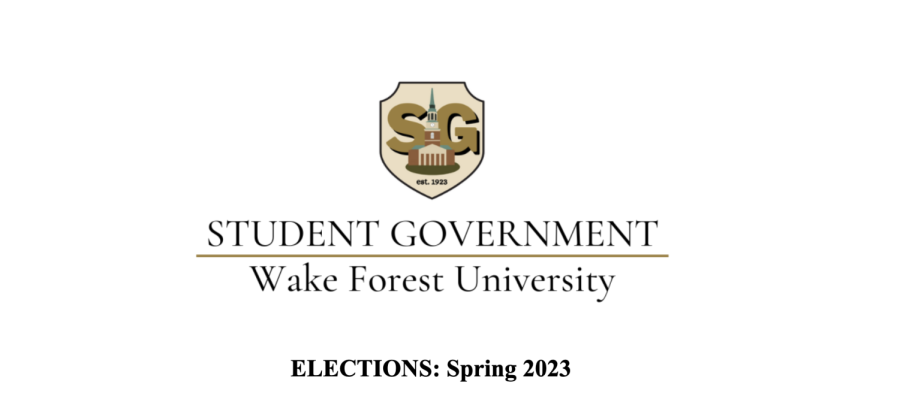











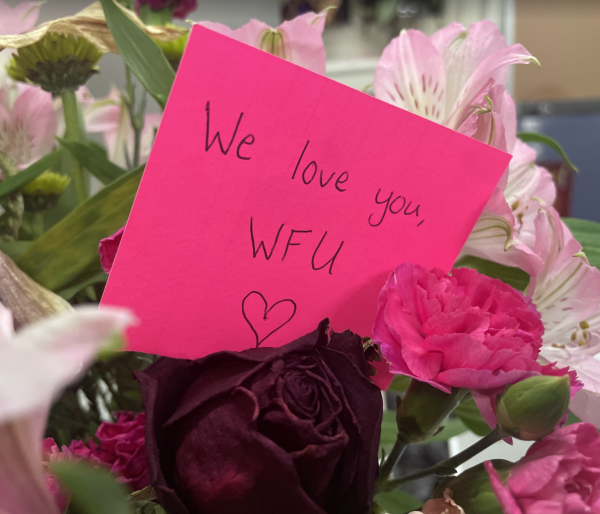


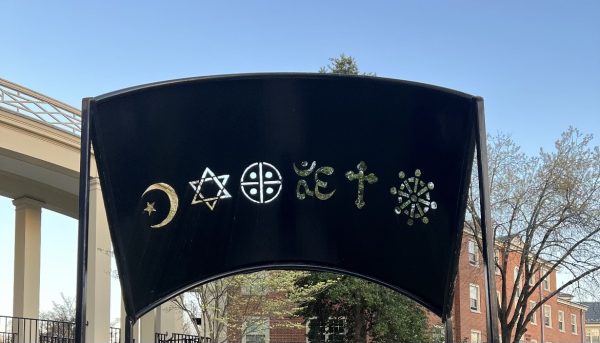
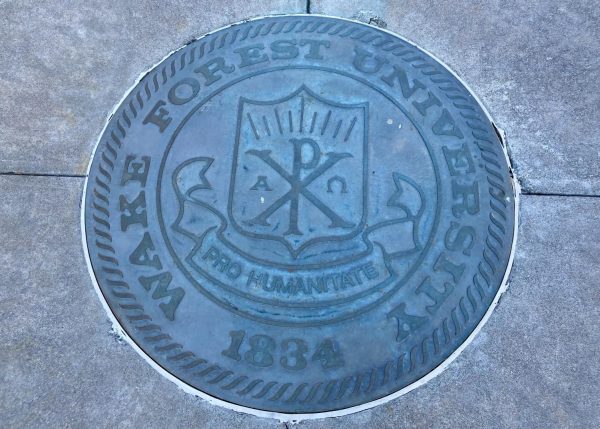

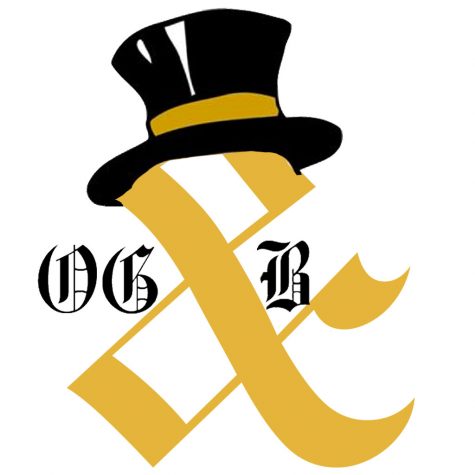
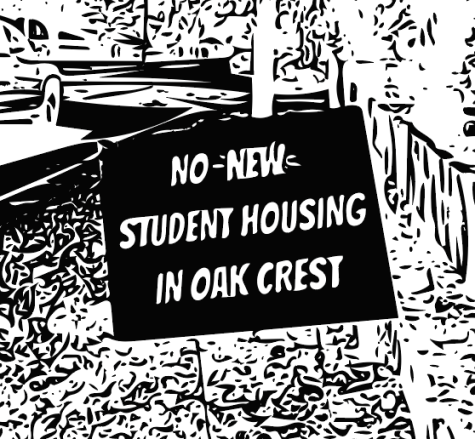
Alex Holtz • Apr 3, 2023 at 8:00 pm
He’s so cool.